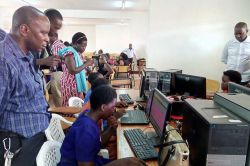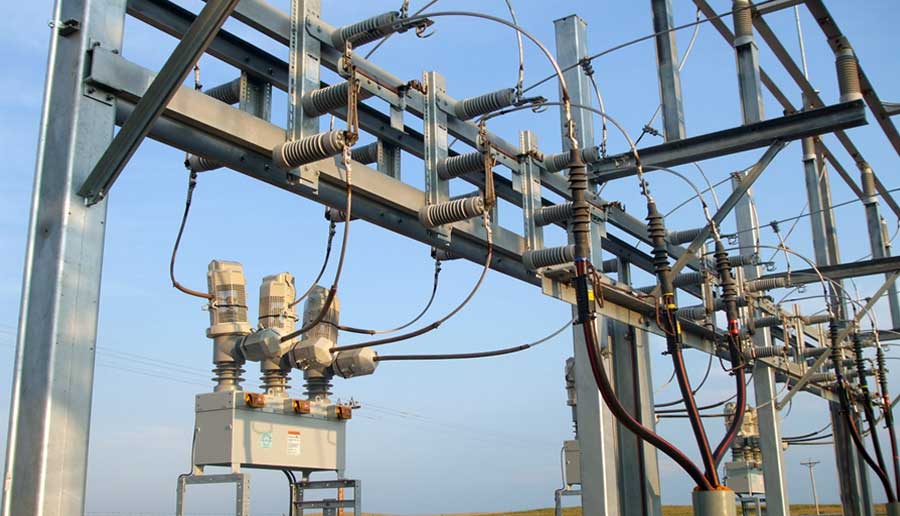
I am a

student

institution

career professional
I need help with
Career Selection & Planning
Find your best-fit career, stream, course or college through advanced assessments and expert guidance.
college applications
Get admits from your dream colleges through end-to-end applications guidance for overseas and liberal arts universities.
I am interested in
Career Development Programs
State-of-the-art career assessments, expert guidance, and more to help students plan their career paths.
Career Advancement Programs
Expert-led MUN training programs, inspirational career talks and more to help students get that added edge.
I am interested in
Getting Certified (ICCC)
Become an International Certified Career Coach through a multi-level credentialing program by Mindler & CDA (USA).
Partnering with Mindler
Expand and grow your career counselling practice by leveraging the full force of Mindler’s career guidance platform.
Ready to discover your perfect career?
Enter your email id to take the Orientation Style test for free.
CAREER COUNSELLING PROGRAMS
Class 8-9
Stream & Subject SelectionAdvanced assessment & personalised guidance to help you select the perfect stream and subjects that align you to the right careers.
Class 10-12
Career Selection & PlanningExpert guidance & 5-dimensional assessment to help you discover your perfect career and choose the right course and college.
Graduates
Career Selection & Development5-dimensional assessment & superior guidance to help you discover your perfect career and choose the best next step.
Thank you for contacting us!
One of our team members will respond in 2 working days to resolve your query. If your query is urgent, you can alternatively call our career helpline.
Ready to pave your way to your dream college?
Leave your details below and we will get in touch shortly.
COLLEGE APPLICATION PROGRAMS
Overseas Application
End-to-end overseas admissions guidance to help you build the perfect applications for your target universities.
Liberal Arts Application
Comprehensive guidance and personalised application development for admissions to Liberal Arts programs.
Thank you for contacting us!
One of our team members will respond in 2 working days to resolve your query. If your query is urgent, you can alternatively call our career helpline.
Ready to give students the best of career guidance?
Leave your details below and we will get in touch shortly.
Career Development Programs
Career Development &
Planning Ecosystem
State-of-the-art assessment & end-to-end career guidance to help students discover their perfect career.
Thank you for contacting us!
One of our team members will respond in 2 working days to resolve your query. If your query is urgent, you can alternatively call our career helpline.
Ready to give your students the added edge?
Leave your details below and we will get in touch shortly.
Career Advancement Programs
MUN Training Program
Expert-led training and comprehensive guidance sessions to help students excel at MUN conferences.
Mindler Talks
Career awareness and inspirational talks for students with professionals who have achieved success in their fields.
Thank you for contacting us!
One of our team members will respond in 2 working days to resolve your query. If your query is urgent, you can alternatively call our career helpline.
Ready to upgrade your career counselling skills?
Enter your email id to start your ICCC application.
Getting Certified (ICCC)
International Certified
Career Coach (ICCC)
A 3-month program with emphasis on global practices, experiential learning & career guidance tools.
Thank you for contacting us!
One of our team members will respond in 2 working days to resolve your query. If your query is urgent, you can alternatively call our career helpline.
Ready to grow as a counsellor?
Leave your details below and we will get in touch shortly.
Partnering with Mindler
Mindler Partner Program
World-class career assessment platform & tools to help you scale up your career counselling practice.
Thank you for contacting us!
One of our team members will respond in 2 working days to resolve your query. If your query is urgent, you can alternatively call our career helpline.
Breaking News
- Flexible Remote Work Opportunity for University Students: Earn $100–$250 Per Month ...Read More
- Ministry of Education and Sports Azerbaijan Government Scholarships For 2025-2026 Academic Year ...Read More
- Government Sponsorship Undergraduate Admission Lists 2025-26 for Makerere University ...Read More
- Ministry of Education And Sports: Egyptian Government Scholarships 2025-2026 Academic Year ...Read More
- Ground Breaker Full Scholarship for girls to study Software Engineering 2025 July Intake ...Read More
- Tony Elumelu Foundation Entrepreneurship Programme (TEEP) 2025 for young African Entrepreneurs ...Read More
- DESIGNING FUTURES 2050 International Design Competition 2025 (€15,000 prize) ...Read More
- Ground Breaker Full time Scholarship for girls to study Software Engineering 2025 Intake ...Read More
- Ministry of Education And Sports Algerian Vocational Training Scholarships for 2024-2025 AY ...Read More
- Ministry of Education and Sports Advert for the Algerian Government Scholarships for 2024-2025 ...Read More
Power engineer
Power engineers, or power systems engineers, work within the broader field of energy engineering and their job primarily involves designing and developing renewable, energy efficent power grids and utility systems. They research and implement ways to integrate renewable power technology and are often involved in public works projects, and employed on federal projects that involve the integration of large power grids.
Add to FavouritesPower engineers are responsible for maintaining a network of components which convert different forms of energy into electricity and for managing any of the three main subsystems of power engineering: the generation subsystem, the transmission subsystem, or the distribution subsystem. The engineers are also responsible for the electrical devices that are attached to these systems, which include transformers, generators, and motors. Power engineers' duties typically include making sure that all the devices are functioning properly and that they meet safety regulations.
Skills and qualifications
An electrical engineering degree prepares the upcoming engineer for general power plant operations. Necessary skills of power engineers begin with a general understanding of power plants. Established power engineers demonstrate traditional skills such as awareness of efficient system design. An engineer who understands how to design and optimize a process for maximum efficiency is what a perspective employer expects. It not only helps to qualify the power engineer for the job, but validates probable cost efficiency to the employer.
Power engineers not only have to hone their current skills, but be willing to gain new ones. Understanding how automation of systems operates allows for greater proficiency. One of the upcoming components of power engineering is an increased demand for computer and software engineering. Understanding high tech cyber security and having a vast amount of internet tech skills will be an expectation of any employer.
In this day and age, it is important that power engineers are willing to think outside of the box. Power engineering is an evolving profession, one which, if only acknowledged from a traditional perspective, could leave an even larger gap in the profession than already projected. It used to be a subdiscipline of electrical engineering before it emerged as a field in its own right.
A growing number of power engineers are working on projects that involve integrating green technologies for the purpose of reducing energy consumption and increasing energy efficiency, so it is essential that engineers keep up to date with latest research and technologies in this sector.
Work
Creating power grid technology is a large portion of power engineers' daily duties, whether they are employed at power plants, industrial facilities, or in residential areas. Power engineers are responsible for making sure that power grids are safe for operation and that all the elements, including generators, turbines, pumps, air conditioning systems, and heat exchangers, are working properly and meet all the relevant safety regulations and quality standards.
Power engineers will typically meet with other engineers and clients to discuss current or future projects, and inspect existing installations to make sure that everything is in working order. When preparing to install new systems, they will usually perform detailed calculations and analyses to determine the specifications and standards for construction, installation, or manufacturing.
-
 Malyasian Government Scholaship Under Malyasian Technical Cooperation Program
Full Scholarship to study in Malyasia
Malyasian Government Scholaship Under Malyasian Technical Cooperation Program
Full Scholarship to study in Malyasia
Know more -
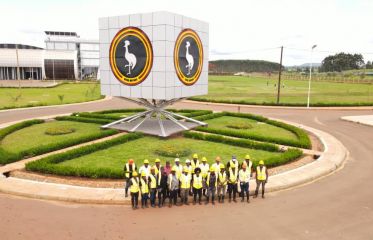 Graduate Intern - Information Systems Engineering (2 Positions)
Kiira Motors Corporation Invites Applications from Resourceful, Qualified and Passionate Individuals
Graduate Intern - Information Systems Engineering (2 Positions)
Kiira Motors Corporation Invites Applications from Resourceful, Qualified and Passionate Individuals
Know more -
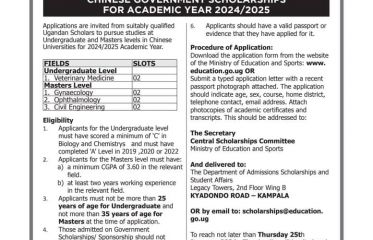 Ministry of Education And Sports Chinese Government Scholarships for Academic Year 2024-2025
Applications are invited from suitably qualified Ugandan Scholars to pursue studies at Undergraduate and Masters levels in Chinese Universities for 2024/2025 Academic Year
Ministry of Education And Sports Chinese Government Scholarships for Academic Year 2024-2025
Applications are invited from suitably qualified Ugandan Scholars to pursue studies at Undergraduate and Masters levels in Chinese Universities for 2024/2025 Academic Year
Know more -
Egypt Japan University of Science and Technology TICAD8 Postgraduate Scholarship Program 2024 TICAD8 Scholarships to develop high quality human resources in the field of STI (Science, Technology and Innovation) toward future African STI network and beyond
Know more -
 Qualcomm Make in Africa Startup Mentorship Program
Mentorship Program for Start Ups in Hardware Development
Qualcomm Make in Africa Startup Mentorship Program
Mentorship Program for Start Ups in Hardware Development
Know more -
 Information on Public Universities Admissions for 2024-2025 Academic Year (JAB Booklet 2024-2025)
The application for placement of students to Public Universities is to be completed by Senior Six Leavers
Information on Public Universities Admissions for 2024-2025 Academic Year (JAB Booklet 2024-2025)
The application for placement of students to Public Universities is to be completed by Senior Six Leavers
Know more -
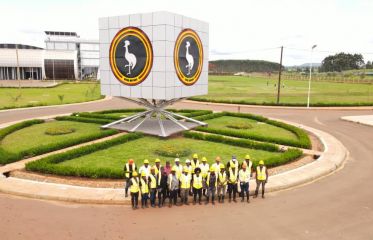 Employment Opportunities at Kiira Motors Corporation
Kiira Motors Corporation Invites Applications from Resourceful, Qualified and Passionate Individuals
Employment Opportunities at Kiira Motors Corporation
Kiira Motors Corporation Invites Applications from Resourceful, Qualified and Passionate Individuals
Know more -
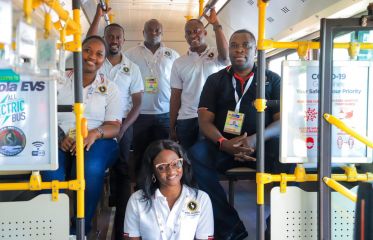 Apply for the Kiira Motors 2 Year Graduate Internship Program
Hon your skills with Uganda's Leading Car Manufacturer
Apply for the Kiira Motors 2 Year Graduate Internship Program
Hon your skills with Uganda's Leading Car Manufacturer
Know more -
 National Science Week 2023 Live Stream
Find your guiding inspiration in the place where dream are made
National Science Week 2023 Live Stream
Find your guiding inspiration in the place where dream are made
Know more -
 The Student Hub introduces Coding and Graphics Designing Classes for Vacists
Hone your craft in trending 21st century skills
The Student Hub introduces Coding and Graphics Designing Classes for Vacists
Hone your craft in trending 21st century skills
Know more -
 Call for applications for African Climate Mobility Youth Solutions (Win $5000)
Climate mobility, climate-induced migration and forced displacement, is growing concern in Africa
Call for applications for African Climate Mobility Youth Solutions (Win $5000)
Climate mobility, climate-induced migration and forced displacement, is growing concern in Africa
Know more -
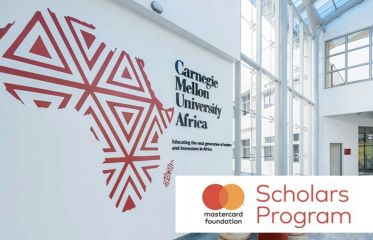 Carnegie Mellon University Africa Mastercard Scholarships Programs 2024 for young Africans
CMU-Africa and the Mastercard Foundation have partnered to support students whose talent and promise exceed their financial resources.
Carnegie Mellon University Africa Mastercard Scholarships Programs 2024 for young Africans
CMU-Africa and the Mastercard Foundation have partnered to support students whose talent and promise exceed their financial resources.
Know more -
 Sciences Po Mastercard Foundation Scholars Program 2024-2025 for graduate study in France
Students receive the scholarships and financial aid throughout the two years of their Master’s programme
Sciences Po Mastercard Foundation Scholars Program 2024-2025 for graduate study in France
Students receive the scholarships and financial aid throughout the two years of their Master’s programme
Know more -
 McGill University MasterCard Scholars Program 2024 for Study in Canada (Fully Funded)
The Scholars Program strives to select academically talented young leaders from Sub-Saharan Africa to access a world-class university education
McGill University MasterCard Scholars Program 2024 for Study in Canada (Fully Funded)
The Scholars Program strives to select academically talented young leaders from Sub-Saharan Africa to access a world-class university education
Know more -
 AIMS African Masters of Medicine Intelligence (AMMI) Graduate Program 2023-2024 (Fully Funded)
A program prepare to prepare well rounded Machine Intelligence (MI) researchers
AIMS African Masters of Medicine Intelligence (AMMI) Graduate Program 2023-2024 (Fully Funded)
A program prepare to prepare well rounded Machine Intelligence (MI) researchers
Know more -
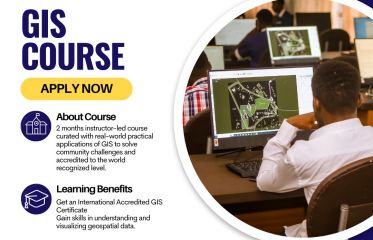 Open GIS Academy Launches GIS Course for M&E personnel
2 Months Instructor Led Course
Open GIS Academy Launches GIS Course for M&E personnel
2 Months Instructor Led Course
Know more -
WAAW Foundation Scholarship for Female University STEM Students Scholarship for female college students in Africa to pursue their studies in a STEM-related course
Know more -
Coca Cola Beverage Africa graduate Training Program 2023 Should have a First-class or Second-class Upper university degree completed between 2021 and 2023
Know more -
 University of Cape Town MasterCard Foundation Scholars Program 2023-2024 (Fully Funded)
Fully Funded Scholarships to study in South Africa
University of Cape Town MasterCard Foundation Scholars Program 2023-2024 (Fully Funded)
Fully Funded Scholarships to study in South Africa
Know more -
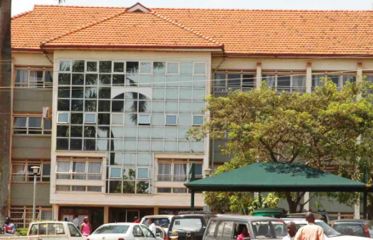 Kyambogo University Government Sponsorship Admissions Lists 2023-2024
Candidates admitted to the respective courses tenable at Kyambogo University
Kyambogo University Government Sponsorship Admissions Lists 2023-2024
Candidates admitted to the respective courses tenable at Kyambogo University
Know more -
Internship and Graduate Trainee Opportunities at Total Uganda Start your Career With Total Uganda
Know more -
 Indian Government Scholarships 2023-2024
PhD , Masters and Undergraduate Scholarships
Indian Government Scholarships 2023-2024
PhD , Masters and Undergraduate Scholarships
Know more -
 Ingressive for Good (14G) DataCamp Scholarships 2023 for young Africans
Scholarship to hone Data Science Skills
Ingressive for Good (14G) DataCamp Scholarships 2023 for young Africans
Scholarship to hone Data Science Skills
Know more -
AI for Science Master’s program at AIMS South Africa 2023 for African Students Full Scholarship to Study Artificial Intelligence
Know more -
 Call for applications for CNOOC Welders Training and Certification Program
Free train in 3G and 6G welding
Call for applications for CNOOC Welders Training and Certification Program
Free train in 3G and 6G welding
Know more -
 Swedish Institute Scholarships for Global Professional (SISGP) 2023-2024 for Master's Level Studies in Sweden (Fully Funded)
The SI Scholarship for Global Professionals aims to develop future global leaders that will contribute to the United Nations 2030 Agenda for Sustainable Development and to sustainable development
Swedish Institute Scholarships for Global Professional (SISGP) 2023-2024 for Master's Level Studies in Sweden (Fully Funded)
The SI Scholarship for Global Professionals aims to develop future global leaders that will contribute to the United Nations 2030 Agenda for Sustainable Development and to sustainable development
Know more -
 Fashionomics Africa Online Masterclasses Incubator And Accelerator Programs Call for Application
Entrepreneurs will be coached and mentored in an interactive and tailored two-week training to review, prepare and present their businesses for capital raising from investors.
Fashionomics Africa Online Masterclasses Incubator And Accelerator Programs Call for Application
Entrepreneurs will be coached and mentored in an interactive and tailored two-week training to review, prepare and present their businesses for capital raising from investors.
Know more -
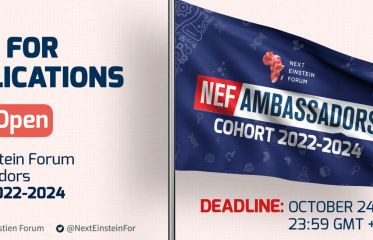 Next Einstein Forum (NEF) Young Ambassador Programme 2022-2024 for young African
The Next Einstein Forum (NEF) is excited to announce a call for applications for its new cohort of NEF Ambassadors (2022-2024)
Next Einstein Forum (NEF) Young Ambassador Programme 2022-2024 for young African
The Next Einstein Forum (NEF) is excited to announce a call for applications for its new cohort of NEF Ambassadors (2022-2024)
Know more -
American University of Beirut MasterCard Foundation Scholarship Program 2023-2024 for Sub-Saharan African Students The American University of Beirut (AUB) offers full scholarships for graduate education in partnership with the Mastercard Foundation
Know more -
Virtual Factory Network Relief Fund for Artisans (Win Up to 10 Million UGX) Enabling business growth through empowering, strengthening and transitioning cottage industry entrepreneurs
Know more -
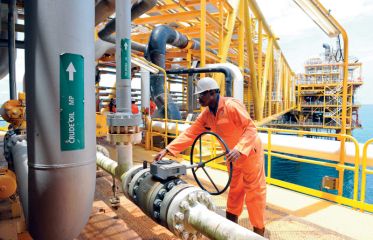 Employment Opportunities at Sinopec International Petroleum Services
Sinopec is looking for experienced professionals who have 5 or more years of relevant experience and recognized expertise in large onshore/ offshore oil and gas EPC projects
Employment Opportunities at Sinopec International Petroleum Services
Sinopec is looking for experienced professionals who have 5 or more years of relevant experience and recognized expertise in large onshore/ offshore oil and gas EPC projects
Know more -
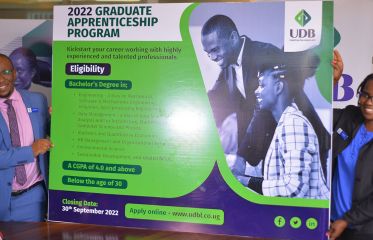 Uganda Development Bank Graduate Apprenticeship Program 2022
Uganda Development Bank Ltd seeks to recruit Brilliant young Graduates from reputable Universities/Colleges
Uganda Development Bank Graduate Apprenticeship Program 2022
Uganda Development Bank Ltd seeks to recruit Brilliant young Graduates from reputable Universities/Colleges
Know more -
 The Schlumberger Foundation is accepting new applications for the 2023–2024 Faculty for the Future Fellowships
Fellowships for women in STEM
The Schlumberger Foundation is accepting new applications for the 2023–2024 Faculty for the Future Fellowships
Fellowships for women in STEM
Know more -
Total Graduate Trainees opportunities 2022 Work opportunities at Total Energies
Know more -
 Call for applications for the IEEE Continued Program
Online Courses from the Institute of Electrical and Electronics Engineers
Call for applications for the IEEE Continued Program
Online Courses from the Institute of Electrical and Electronics Engineers
Know more -
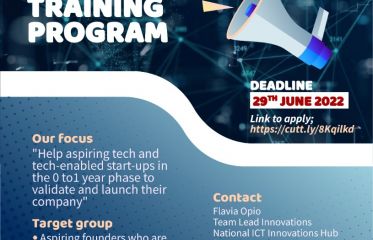 Call for Applications for ICT Founders Training Program by The Ministry of ICT and National Guidance
ICT Founder Business Training Program
Call for Applications for ICT Founders Training Program by The Ministry of ICT and National Guidance
ICT Founder Business Training Program
Know more -
 Ministry of Education and Sports Indian Government Scholarships for 2022-2023 Academic Year
Master and Undergraduate Scholarships in India
Ministry of Education and Sports Indian Government Scholarships for 2022-2023 Academic Year
Master and Undergraduate Scholarships in India
Know more -
 KCB Bank -Giz Full Tuition Scholarship Cohort 2
KCB Bank Uganda, in partnership with GIZ E4D, is offering full-tuition scholarships
KCB Bank -Giz Full Tuition Scholarship Cohort 2
KCB Bank Uganda, in partnership with GIZ E4D, is offering full-tuition scholarships
Know more -
 Swedish AI Fund (SAIF) for early stage African AI Companies
Swedish AI Fund (SAIF) aims to help Early Stage African AI Companies
Swedish AI Fund (SAIF) for early stage African AI Companies
Swedish AI Fund (SAIF) aims to help Early Stage African AI Companies
Know more -
 Google Solutions Challenge 2022 for University Students Around the World
The mission of the 2022 Solution Challenge is to solve for one or more of the United Nations 17 Sustainable Development Goals using Google technology.
Google Solutions Challenge 2022 for University Students Around the World
The mission of the 2022 Solution Challenge is to solve for one or more of the United Nations 17 Sustainable Development Goals using Google technology.
Know more -
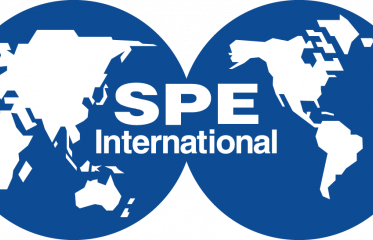 Society of Petroleum Engineers (SPE) Imomoh Scholarship 2022-2023 for African Students
Scholarship opportunity for Masters Students
Society of Petroleum Engineers (SPE) Imomoh Scholarship 2022-2023 for African Students
Scholarship opportunity for Masters Students
Know more -
 Applications are now open for MEST Africa’s 12-month Training Program for Class of 2023
After School Entrepreneurship Training Program
Applications are now open for MEST Africa’s 12-month Training Program for Class of 2023
After School Entrepreneurship Training Program
Know more -
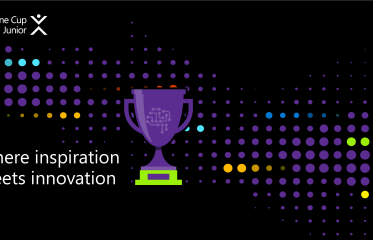 Microsoft Imagine Cup Junior 2022: A Global Challenge for Secondary School Students
An exciting opportunity for students to learn about technology and how it can be used to solve some of the world’s biggest challenges
Microsoft Imagine Cup Junior 2022: A Global Challenge for Secondary School Students
An exciting opportunity for students to learn about technology and how it can be used to solve some of the world’s biggest challenges
Know more -
 African Coding Network 2022 Scholarships for African Women in Technology
Learn the skills that will help you get to where you want to be
African Coding Network 2022 Scholarships for African Women in Technology
Learn the skills that will help you get to where you want to be
Know more -
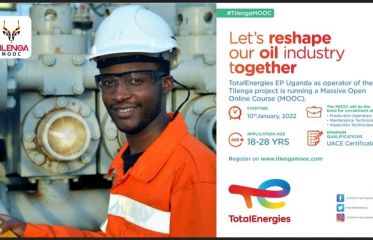 TotalEnergies launches online training course to skill Ugandans in Oil and Gas
Shaping the Oil Industry
TotalEnergies launches online training course to skill Ugandans in Oil and Gas
Shaping the Oil Industry
Know more -
 KCB Uganda GIZ Youth Upskilling Program 2022 (Full Scholarship)
Full Scholarship in mansory ,plumbing, welding, carpentry and electrical installations
KCB Uganda GIZ Youth Upskilling Program 2022 (Full Scholarship)
Full Scholarship in mansory ,plumbing, welding, carpentry and electrical installations
Know more -
 UNICEF Uganda Innovation Fund Challenge Cohort 2 for Innovators
Receive Grants Funding of up to 80 Million Shillings
UNICEF Uganda Innovation Fund Challenge Cohort 2 for Innovators
Receive Grants Funding of up to 80 Million Shillings
Know more -
 Call for Applications for African SMEs in the Blue Economy
Pitch your blue economy project during the BlueInvest Africa 2022 event!
Call for Applications for African SMEs in the Blue Economy
Pitch your blue economy project during the BlueInvest Africa 2022 event!
Know more -
 EPFL School of Life Sciences Summer Research Program
Experience what it means to be part of the thriving science community in Switzerland
EPFL School of Life Sciences Summer Research Program
Experience what it means to be part of the thriving science community in Switzerland
Know more -
 Apply for the African Women in Data Scholarship
Hon your skills in Data Science with this full scholarship
Apply for the African Women in Data Scholarship
Hon your skills in Data Science with this full scholarship
Know more -
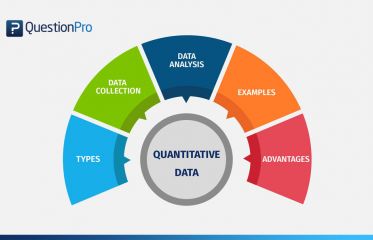 Quantitative Data Literacy Training Cohort III
Hon your skills in Data Science
Quantitative Data Literacy Training Cohort III
Hon your skills in Data Science
Know more -
 Generation Google Scholarship (7,000 EUR) for women in computer science for 2022-2023 academic year
Scholarship to inspire women scientists excel in technology
Generation Google Scholarship (7,000 EUR) for women in computer science for 2022-2023 academic year
Scholarship to inspire women scientists excel in technology
Know more -
 Young water fellowship programme (YWF) 2021 for early-stage Ugandan Social Entrepreneurs
(YWF) Uganda 2021 is an entrepreneurship programme dedicated to social businesses in the water, sanitation and hygiene sector
Young water fellowship programme (YWF) 2021 for early-stage Ugandan Social Entrepreneurs
(YWF) Uganda 2021 is an entrepreneurship programme dedicated to social businesses in the water, sanitation and hygiene sector
Know more -
 Meet Winnie Nalubowa; Uganda’s female rocket scientist
She Graduated with a First Class In Bachelors Degree in Aircraft and Rocket Engineering
Meet Winnie Nalubowa; Uganda’s female rocket scientist
She Graduated with a First Class In Bachelors Degree in Aircraft and Rocket Engineering
Know more -
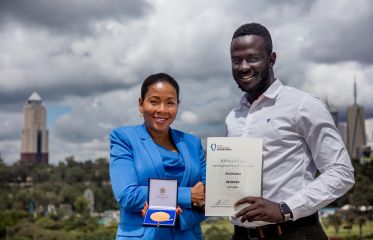 The Africa Prize for Engineering Innovations, Win £ 25,000
Advance Your Engineering Innovation with the Royal Academy of Engineering
The Africa Prize for Engineering Innovations, Win £ 25,000
Advance Your Engineering Innovation with the Royal Academy of Engineering
Know more -
 Meet the three students who won the 2020 Micro Grid Academy Young Talent of the Year Award
Women at the fore-front of renewable energy in Uganda
Meet the three students who won the 2020 Micro Grid Academy Young Talent of the Year Award
Women at the fore-front of renewable energy in Uganda
Know more -
 Apply for the Girl Up Scholarship Fund (Fully Funded)
Fully Funded Scholarship to study at a University of your Choice
Apply for the Girl Up Scholarship Fund (Fully Funded)
Fully Funded Scholarship to study at a University of your Choice
Know more -
 Total Full Masters Scholarship at the International French Petroleum Institute for 2021 intake
Full Scholarship at the International French Petroleum Institute (IFP)
Total Full Masters Scholarship at the International French Petroleum Institute for 2021 intake
Full Scholarship at the International French Petroleum Institute (IFP)
Know more -
 Full Tuition and Functional Fees Scholarships at Makerere University 2021-2022 Academic Year
Bright Female Students Scholarships
Full Tuition and Functional Fees Scholarships at Makerere University 2021-2022 Academic Year
Bright Female Students Scholarships
Know more -
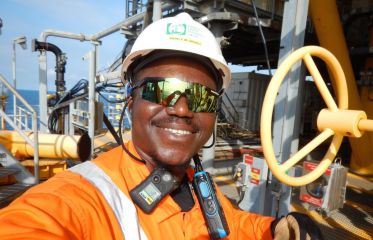 Call for applications at Uganda Petroleum Insititute Kigumba
80% scholarship in Oil and Gas Industry
Call for applications at Uganda Petroleum Insititute Kigumba
80% scholarship in Oil and Gas Industry
Know more -
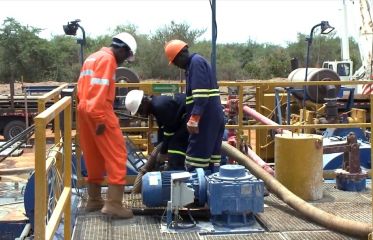 Scholarships for International technical certificates in Oil and Gas in Uganda
80% Government Scholarship in Oil and Gas
Scholarships for International technical certificates in Oil and Gas in Uganda
80% Government Scholarship in Oil and Gas
Know more -
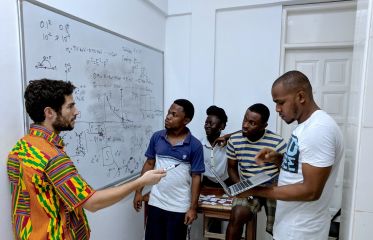 African Institute for Mathematical Sciences (AIMS) 2021 Master's Scholarships (Fully Funded)
Fully Funded Scholarship to advance your career in Mathematical Sciences
African Institute for Mathematical Sciences (AIMS) 2021 Master's Scholarships (Fully Funded)
Fully Funded Scholarship to advance your career in Mathematical Sciences
Know more -
 The Lester B. Pearson International Student Scholarships At University of Toronto Canada 2020-2021
Study in Canada for Free
The Lester B. Pearson International Student Scholarships At University of Toronto Canada 2020-2021
Study in Canada for Free
Know more -
 African Leadership University Refugee Scholarship 2020 (Fully Funded)
Empowering refugees to access quality education
African Leadership University Refugee Scholarship 2020 (Fully Funded)
Empowering refugees to access quality education
Know more -
 African Disability Scholarship at African Leadership University 2020(Fully Funded)
Disabled Students scholarship to African Leadership University
African Disability Scholarship at African Leadership University 2020(Fully Funded)
Disabled Students scholarship to African Leadership University
Know more -
 United Nations Environment Programme(UNEP) Young Champions of Earth 2020
Become a young champion of Earth
United Nations Environment Programme(UNEP) Young Champions of Earth 2020
Become a young champion of Earth
Know more -
 Study in New Zealand on a full scholarship 2020-2021 (Fullly Funded)
Attain world class tertiary and vocational education in New Zealand
Study in New Zealand on a full scholarship 2020-2021 (Fullly Funded)
Attain world class tertiary and vocational education in New Zealand
Know more -
 GHC Scholarships for Women Technologists to attend Grace Hopper Celebration 2020 in USA
Get Scholarship to attend Grace Hopper Fellowship
GHC Scholarships for Women Technologists to attend Grace Hopper Celebration 2020 in USA
Get Scholarship to attend Grace Hopper Fellowship
Know more -
 The Egypt Japan University of Science and Technology 2020 Scholarship
Study in a world's leading University
The Egypt Japan University of Science and Technology 2020 Scholarship
Study in a world's leading University
Know more -
 MAURITIUS – AFRICA SCHOLARSHIP SCHEME 2020 CALL FOR APPLICATIONS
Get an international Education while studying in Mauritius
MAURITIUS – AFRICA SCHOLARSHIP SCHEME 2020 CALL FOR APPLICATIONS
Get an international Education while studying in Mauritius
Know more -
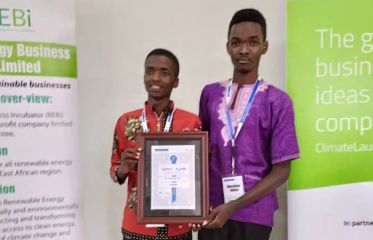 Makerere University Students win 300 million climate change grant
The team designed a water filtration technology code-named Vepox Filter
Makerere University Students win 300 million climate change grant
The team designed a water filtration technology code-named Vepox Filter
Know more -
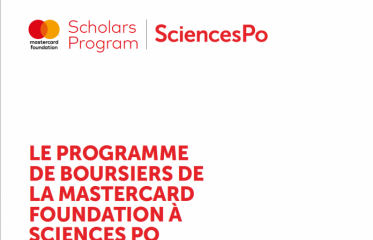 Sciences Po Mastercard Foundation Scholars Program 2020-2021 for study in France
Fully Funded Scholarship to study in France
Sciences Po Mastercard Foundation Scholars Program 2020-2021 for study in France
Fully Funded Scholarship to study in France
Know more -
 Japan Africa Dream Scholarship Program 2020 for young Africans to study in Japan (Fully Funded)
Get World Class Education in Japan
Japan Africa Dream Scholarship Program 2020 for young Africans to study in Japan (Fully Funded)
Get World Class Education in Japan
Know more -
 MasterCard Foundation Scholars Program 2020 at McGill University in Canada (Fully Funded)
Study in Canada
MasterCard Foundation Scholars Program 2020 at McGill University in Canada (Fully Funded)
Study in Canada
Know more -
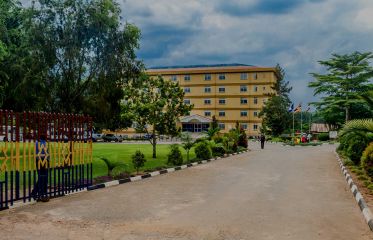 Ndejje University introduces degree in sports medicine
Bachelor’s degree in sports medicine starts in January 2020
Ndejje University introduces degree in sports medicine
Bachelor’s degree in sports medicine starts in January 2020
Know more -
 Apply for the WAAW Foundation STEM scholarships for female students 2019-2020
Promoting Africa's STEM Girls
Apply for the WAAW Foundation STEM scholarships for female students 2019-2020
Promoting Africa's STEM Girls
Know more -
 Apply for the Chevening UK Government full Scholarship to Study in the UK 2020-2021
Unique opportunity for future leaders to study in UK
Apply for the Chevening UK Government full Scholarship to Study in the UK 2020-2021
Unique opportunity for future leaders to study in UK
Know more -
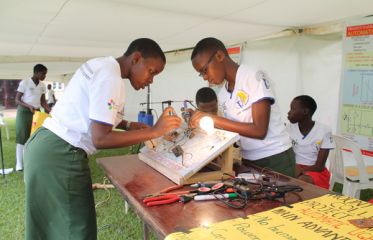 Girls soar in science innovations
Inspiring girls to pursue science majors
Girls soar in science innovations
Inspiring girls to pursue science majors
Know more -
 Senior six dropout beats all odds to become a fighter jet pilot
East Africa’s best military aircraft pilot in the making
Senior six dropout beats all odds to become a fighter jet pilot
East Africa’s best military aircraft pilot in the making
Know more -
 Makerere defeats top USA University at a world technology exhibition
Innovations for a Resilient Africa
Makerere defeats top USA University at a world technology exhibition
Innovations for a Resilient Africa
Know more -
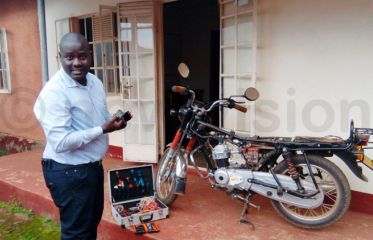 Graduate Engineer develops Boda Boda Tracking System
The telecom engineering graduate wants to help owners track stolen bikes
Graduate Engineer develops Boda Boda Tracking System
The telecom engineering graduate wants to help owners track stolen bikes
Know more -
 Meet lynette kebirungi uganda's 2nd female aerospace engineer
The second Ugandan female Aerospace Engineer
Meet lynette kebirungi uganda's 2nd female aerospace engineer
The second Ugandan female Aerospace Engineer
Know more -
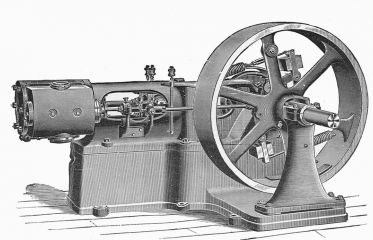 Makerere reverts to steam engine for more energy
Using steam to generate power
Makerere reverts to steam engine for more energy
Using steam to generate power
Know more -
 A Moment with University Students who developed a Bio gas Powered TriCycle
Uganda's Winners from the Thought for Food Global
A Moment with University Students who developed a Bio gas Powered TriCycle
Uganda's Winners from the Thought for Food Global
Know more -
 Kayoola the solar powered bus finally unveiled
A Brain Child of Makerere University
Kayoola the solar powered bus finally unveiled
A Brain Child of Makerere University
Know more -
 Girl who made bricks for fees graduates
The far one can go to achieve the dream
Girl who made bricks for fees graduates
The far one can go to achieve the dream
Know more -
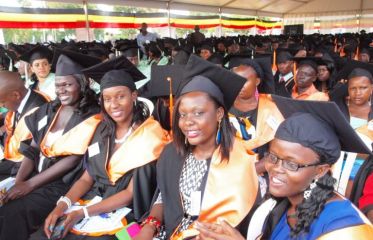 Makerere to scrap courses with few students
Courses with less graduates to be affected
Makerere to scrap courses with few students
Courses with less graduates to be affected
Know more -
 Makerere produces home-made tractor
Makerere University championing innovation in the
Makerere produces home-made tractor
Makerere University championing innovation in the
Know more -
 Female students in Uganda develope a Gynecology App
Female Engineers rising up to the challenge
Female students in Uganda develope a Gynecology App
Female Engineers rising up to the challenge
Know more -
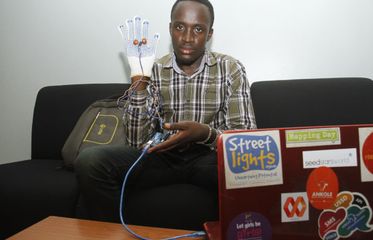 Makerere students develop breast cancer detecting technology
The Story of three innovative Makerere Students
Makerere students develop breast cancer detecting technology
The Story of three innovative Makerere Students
Know more -
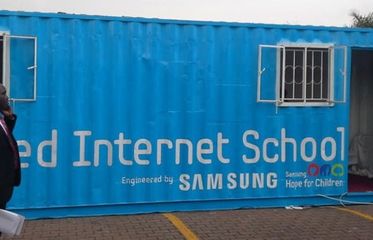 Samsung to Introduce Solar powered internet school
Dawn of a new day for Ugandan Students
Samsung to Introduce Solar powered internet school
Dawn of a new day for Ugandan Students
Know more -
 Matibabu: A bloodless way to test for Malaria
The Story of Ugandan Innovators
Matibabu: A bloodless way to test for Malaria
The Story of Ugandan Innovators
Know more -
 Uganda Engineer modified the Boeing 787 Dreamliner
The Story of Uganda's Aeronautics Engineer
Uganda Engineer modified the Boeing 787 Dreamliner
The Story of Uganda's Aeronautics Engineer
Know more
Draw Inspiration from time tested individuals
-
 Understanding the Mobility Industrial Value Chains - Kiira Motors
Understanding the Mobility Industrial Value Chains - Kiira Motors
Watch Interview -
 Meet Arembe Anthony one of the engineers behind the clean piped water in Kampala
Meet Arembe Anthony one of the engineers behind the clean piped water in Kampala
Watch Interview
Careers that are in the same career field as Power engineer
-
 Industrial Chemist
Know more
Industrial Chemist
Know more -
 Project Engineer
Know more
Project Engineer
Know more -
 Service engineer
Know more
Service engineer
Know more -
 Chemical engineer
Know more
Chemical engineer
Know more -
 Broadcast engineer
Know more
Broadcast engineer
Know more -
 Biomedical engineer
Know more
Biomedical engineer
Know more -
 Automotive engineer
Know more
Automotive engineer
Know more -
 Research and development manager
Know more
Research and development manager
Know more -
 Power engineer
Know more
Power engineer
Know more -
 Petroleum engineer
Know more
Petroleum engineer
Know more -
 Network engineer
Know more
Network engineer
Know more -
 Mechanical engineer
Know more
Mechanical engineer
Know more -
 Agricultural engineer
Know more
Agricultural engineer
Know more -
 Communications engineer
Know more
Communications engineer
Know more -
 Food engineer
Know more
Food engineer
Know more -
 Systems engineer
Know more
Systems engineer
Know more -
 Sound engineer
Know more
Sound engineer
Know more -
 Solar engineer
Know more
Solar engineer
Know more -
 Statistician
Know more
Statistician
Know more -
 Mathematician
Know more
Mathematician
Know more -
 Geological and Petroleum Technician
Know more
Geological and Petroleum Technician
Know more -
 Geophysical Data Technician
Know more
Geophysical Data Technician
Know more -
 Forensic Science Technician
Know more
Forensic Science Technician
Know more -
 Architectural and Engineering Manager
Know more
Architectural and Engineering Manager
Know more -
 Biofuels,Biodiesel Technology and Product Development Manager
Know more
Biofuels,Biodiesel Technology and Product Development Manager
Know more -
 Mathematician
Know more
Mathematician
Know more -
 Statistician
Know more
Statistician
Know more -
 Biostatistician
Know more
Biostatistician
Know more -
 Clinical Data Manager
Know more
Clinical Data Manager
Know more -
 Mathematical Technician
Know more
Mathematical Technician
Know more -
Cartographer and Photogrammetrist Know more
-
 Aerospace Engineer
Know more
Aerospace Engineer
Know more -
 Computer Hardware Engineer
Know more
Computer Hardware Engineer
Know more -
 Electrical Engineer
Know more
Electrical Engineer
Know more -
 Electronics Engineers, Except Computer
Know more
Electronics Engineers, Except Computer
Know more -
 Radio Frequency Identification Device Specialist
Know more
Radio Frequency Identification Device Specialist
Know more -
 Health and Safety Engineer, Except Mining Safety Engineer and Inspector
Know more
Health and Safety Engineer, Except Mining Safety Engineer and Inspector
Know more -
 Industrial Safety and Health Engineer
Know more
Industrial Safety and Health Engineer
Know more -
 Fire-Prevention and Protection Engineer
Know more
Fire-Prevention and Protection Engineer
Know more -
 Product Safety Engineer
Know more
Product Safety Engineer
Know more -
 Industrial Engineer
Know more
Industrial Engineer
Know more -
 Human Factors Engineer and Ergonomist
Know more
Human Factors Engineer and Ergonomist
Know more -
 Marine Engineers and Naval Architect
Know more
Marine Engineers and Naval Architect
Know more -
 Marine Engineer
Know more
Marine Engineer
Know more -
 Marine Architect
Know more
Marine Architect
Know more -
 Materials Engineer
Know more
Materials Engineer
Know more -
 Mechanical Engineer
Know more
Mechanical Engineer
Know more -
 Fuel Cell Engineer
Know more
Fuel Cell Engineer
Know more -
 Automotive Engineer
Know more
Automotive Engineer
Know more -
 Mining and Geological Engineer, Including Mining Safety Engineer
Know more
Mining and Geological Engineer, Including Mining Safety Engineer
Know more -
 Nuclear Engineer
Know more
Nuclear Engineer
Know more -
 Petroleum Engineer
Know more
Petroleum Engineer
Know more -
 Biochemical Engineer
Know more
Biochemical Engineer
Know more -
 Validation Engineer
Know more
Validation Engineer
Know more -
 Energy Engineer
Know more
Energy Engineer
Know more -
 Manufacturing Engineer
Know more
Manufacturing Engineer
Know more -
 Mechatronics Engineer
Know more
Mechatronics Engineer
Know more -
 Microsystems Engineer
Know more
Microsystems Engineer
Know more -
 Photonics Engineer
Know more
Photonics Engineer
Know more -
 Robotics Engineer
Know more
Robotics Engineer
Know more -
 Nanosystems Engineer
Know more
Nanosystems Engineer
Know more -
 Wind Energy Engineer
Know more
Wind Energy Engineer
Know more -
 Solar Energy Systems Engineer
Know more
Solar Energy Systems Engineer
Know more -
 Biologist
Know more
Biologist
Know more -
 Biochemists and Biophysicist
Know more
Biochemists and Biophysicist
Know more -
 Zoologists and Wildlife Biologist
Know more
Zoologists and Wildlife Biologist
Know more -
 Bioinformatics Scientist
Know more
Bioinformatics Scientist
Know more -
 Molecular and Cellular Biologist
Know more
Molecular and Cellular Biologist
Know more -
 Geneticist
Know more
Geneticist
Know more -
 Conservation Scientist
Know more
Conservation Scientist
Know more -
 Soil and Water Conservationist
Know more
Soil and Water Conservationist
Know more -
 Range Manager
Know more
Range Manager
Know more -
 Medical Scientists, Except Epidemiologist
Know more
Medical Scientists, Except Epidemiologist
Know more -
 Astronomer
Know more
Astronomer
Know more -
 Physicist
Know more
Physicist
Know more -
 Atmospheric and Space Scientist
Know more
Atmospheric and Space Scientist
Know more -
 Chemist
Know more
Chemist
Know more -
 Materials Scientist
Know more
Materials Scientist
Know more -
 Environmental Scientists and Specialist, Including Health
Know more
Environmental Scientists and Specialist, Including Health
Know more -
 Climate Change Analyst
Know more
Climate Change Analyst
Know more -
 Environmental Restoration Planner
Know more
Environmental Restoration Planner
Know more -
 Industrial Ecologist
Know more
Industrial Ecologist
Know more -
 Geoscientist, Except Hydrologist and Geographer
Know more
Geoscientist, Except Hydrologist and Geographer
Know more -
 Hydrologist
Know more
Hydrologist
Know more -
 Remote Sensing Scientist and Technologist
Know more
Remote Sensing Scientist and Technologist
Know more -
 Economist
Know more
Economist
Know more -
 Environmental Economist
Know more
Environmental Economist
Know more -
 Neuropsychologist and Clinical Neuropsychologist
Know more
Neuropsychologist and Clinical Neuropsychologist
Know more -
 Urban and Regional Planner
Know more
Urban and Regional Planner
Know more -
 Anthropologist and Archeologist
Know more
Anthropologist and Archeologist
Know more -
 Anthropologist
Know more
Anthropologist
Know more -
 Archeologist
Know more
Archeologist
Know more -
 Geographer
Know more
Geographer
Know more -
 Historian
Know more
Historian
Know more -
 Political Scientist
Know more
Political Scientist
Know more -
 Nuclear Monitoring Technician
Know more
Nuclear Monitoring Technician
Know more -
 Social Science Research Assistant
Know more
Social Science Research Assistant
Know more -
 Forest and Conservation Technician
Know more
Forest and Conservation Technician
Know more -
 Quality Control Analyst
Know more
Quality Control Analyst
Know more -
 Precision Agriculture Technician
Know more
Precision Agriculture Technician
Know more -
 Telecommunications Equipment Installer and Repairer, Except Line Installer
Know more
Telecommunications Equipment Installer and Repairer, Except Line Installer
Know more -
 Electric Motor, Power Tool, and Related Repairer
Know more
Electric Motor, Power Tool, and Related Repairer
Know more -
Data Scientist Know more
Online Training in Science, Technology, Engineering and Mathematics
Latest Jobs Corner
-
Principal Legal Officer Jobs – Ministry of Energy and Mineral Development
Posted: Posted Tue, 16 Dec 2025 07:46:22 +0000 -
Stores Attendant Jobs – Xclusive Uganda
Posted: Posted Tue, 16 Dec 2025 07:45:44 +0000 -
3 Quality Checker Jobs – Xclusive Uganda
Posted: Posted Tue, 16 Dec 2025 07:44:45 +0000 -
Driller Jobs – Ministry of Energy and Mineral Development
Posted: Posted Tue, 16 Dec 2025 07:41:03 +0000 -
Assistant Commissioner, Planning and Partnership Jobs – Ministry of Tourism Wildlife and Antiquities
Posted: Posted Tue, 16 Dec 2025 07:35:52 +0000 -
Commissioner Surveying and Mapping Jobs – Ministry of Lands, Housing & Urban Development
Posted: Posted Tue, 16 Dec 2025 07:30:40 +0000 -
IT / Data Officer (Fresher Diploma Jobs) Jobs – BethanyKids Uganda
Posted: Posted Tue, 16 Dec 2025 07:25:32 +0000 -
Social Worker (Fresher Diploma Jobs) – BethanyKids Uganda
Posted: Posted Tue, 16 Dec 2025 07:20:23 +0000 -
Occupational Therapist Jobs – BethanyKids Uganda
Posted: Posted Tue, 16 Dec 2025 07:15:15 +0000 -
Chief Executive Officer (CEO) Jobs – Alexander Lloyd
Posted: Posted Tue, 16 Dec 2025 07:10:06 +0000
Advertisement
Advertisement
Popular Careers
-
Civil Engineer
30258 Views -
Actor
24430 Views -
Flight attendant
22419 Views -
Fashion Designer
20675 Views -
Pilot and flight engineer
19340 Views











